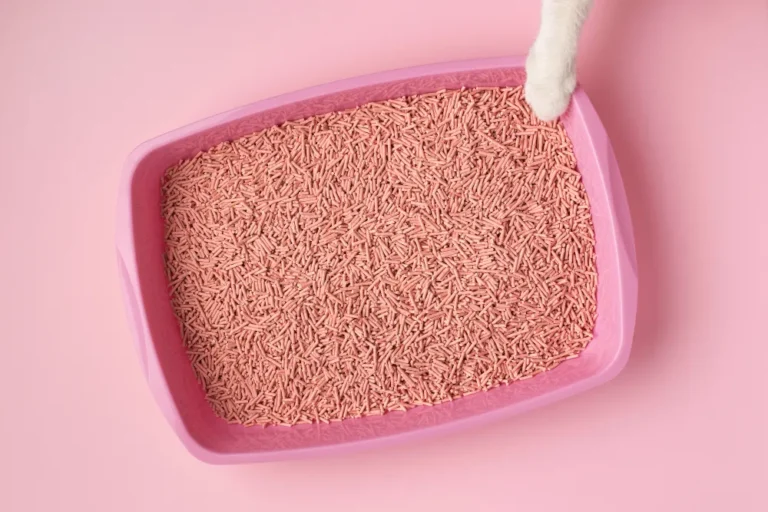
How to Take Care of a Newborn Kitten Without a Mother
Kittens usually stay with their mother until they are about 8 weeks old. It’s very hard to take care of a newborn kitten without a mother. The survival rate for newborn kittens without a mother is poor, with mortality rates ranging from 15% to 40%. We should be very careful about some topics. Here are some important ones:
1.What Should I Feed My Newborn Kitten?
Kittens under 4 weeks of age cannot eat solid food. You should feed your kitten a kitten milk replacer (KMR).
Kittens need kitten milk replacer to provide them with the nutrients they need to grow and develop into healthy cats.
Firstly, you should choose a kitten milk replacer that is good for newborn kittens. Kitten milk replacer should contain these ingredients (Taurine, DHA, and Protein) that provide the necessary nutrition for kittens.
- Taurine: This ingredient is very important for a kitten’s health. It helps support brain and nerve function, boosts the immune system, and protects nerves from damage, especially in the eyes and ears.
- DHA: Another important ingredient for a kitten’s health is DHA. This helps with a kitten’s cognitive development and supports brain and eye development.
- Protein: It is essential for kittens because it provides amino acids and structures for growth and helps maintain a healthy immune system. Protein is also the primary energy source for cats, and they require approximately 30% of their dietary calories to come from protein.
2. Feeding Time
Proper feeding and care are necessary for a newborn kitten. A kitten’s feeding amount depends on their age. So, you should follow this table for feeding your kitten:
| AGE | WEIGHT | AMOUNT PER FEEDING | SCHEDULE |
|---|---|---|---|
| 0-1 weeks | 50-150 grams | 2-6 ml | Every 2 hours |
| 1-2 weeks | 150-250 grams | 6-10 ml | Every 2-3 hours |
| 2-3 weeks | 250-350 grams | 10-14 ml | Every 3-4 hours |
| 3-4 weeks | 350-450 grams | 14-18 ml | Every 4-5 hours |
| 4-5 weeks | 450-550 grams | 18-22 ml | Every 5-6 hours |
Feeding at Night
It is very troublesome to feed a kitten at night. A newborn kitten needs to be fed every 2-3 hours during the night.
Sometimes nighttime feeding is not necessary as long as the kittens are fed at least 4 to 5 times during the day.
If your kitten is 0-3 weeks old, then you must feed them during the night every 2-3 hours. Many kittens make sounds at night if they have some problems.
Most of the time, they make sounds because they are hungry. Also, when they feel insecure, they make sounds.
To help them feel secure, you should provide them food on time and arrange heating for them.
If your kitten is 3-4 weeks old, then nighttime feeding is not so necessary. You can feed them before bed and as early as possible in the morning.
3. How to Prepare the Milk
If you take one spoonful of milk powder, then you have to take two spoonfuls of hot water with it. Mix it in such a way that no lumps remain.
Keep in mind that the milk should not be too thick because kittens have trouble digesting dense milk. While feeding, you should ensure that the milk is not too hot.
Therefore, before feeding, put a few drops of milk on your wrist and check the temperature.
4. How to Feed
You can feed your kitten by bottle. Very young kittens cannot eat on their own. You have to be very careful while feeding them.
Bottle Feeding
You can use a special baby bottle with a tiny nipple. Before feeding, you should wash the bottle with hot water.
First, open the kitten’s mouth with your fingers, then insert the nipple into the kitten’s mouth. You have to put a little pressure on the bottle so that the kitten eats easily.
Avoid overfeeding, as it can lead to health issues like obesity, heart disease, and kidney disease.
5. How to Clean
Keeping the kitten clean is very important for their health. You should keep the kitten clean. You should never bathe a newborn kitten because it can cause fever.
You can clean them by soaking a cloth in lukewarm water and wiping their body. Be careful not to get too much water on them.
6. Kitten Urination and Defecation
Newborn kittens cannot urinate or defecate on their own. Kittens aged 3-4 weeks can urinate and defecate on their own, but if your kitten is 0-3 weeks old, you should help them.
You should help the kitten urinate or defecate after each feeding. You need to rub their backside with a tissue or soft cloth to stimulate them.
7. Keep the Kitten Warm
Newborn kittens take time to acclimate to their environment. That’s why it’s so important to keep them warm.
It also helps them feel safe. You need to make sure that the place where you keep the kittens is warm.



